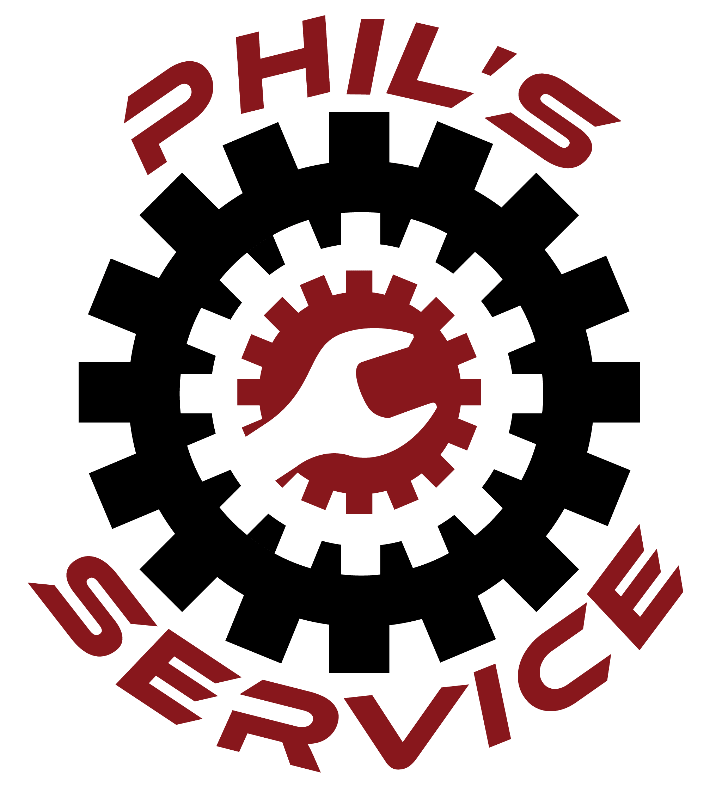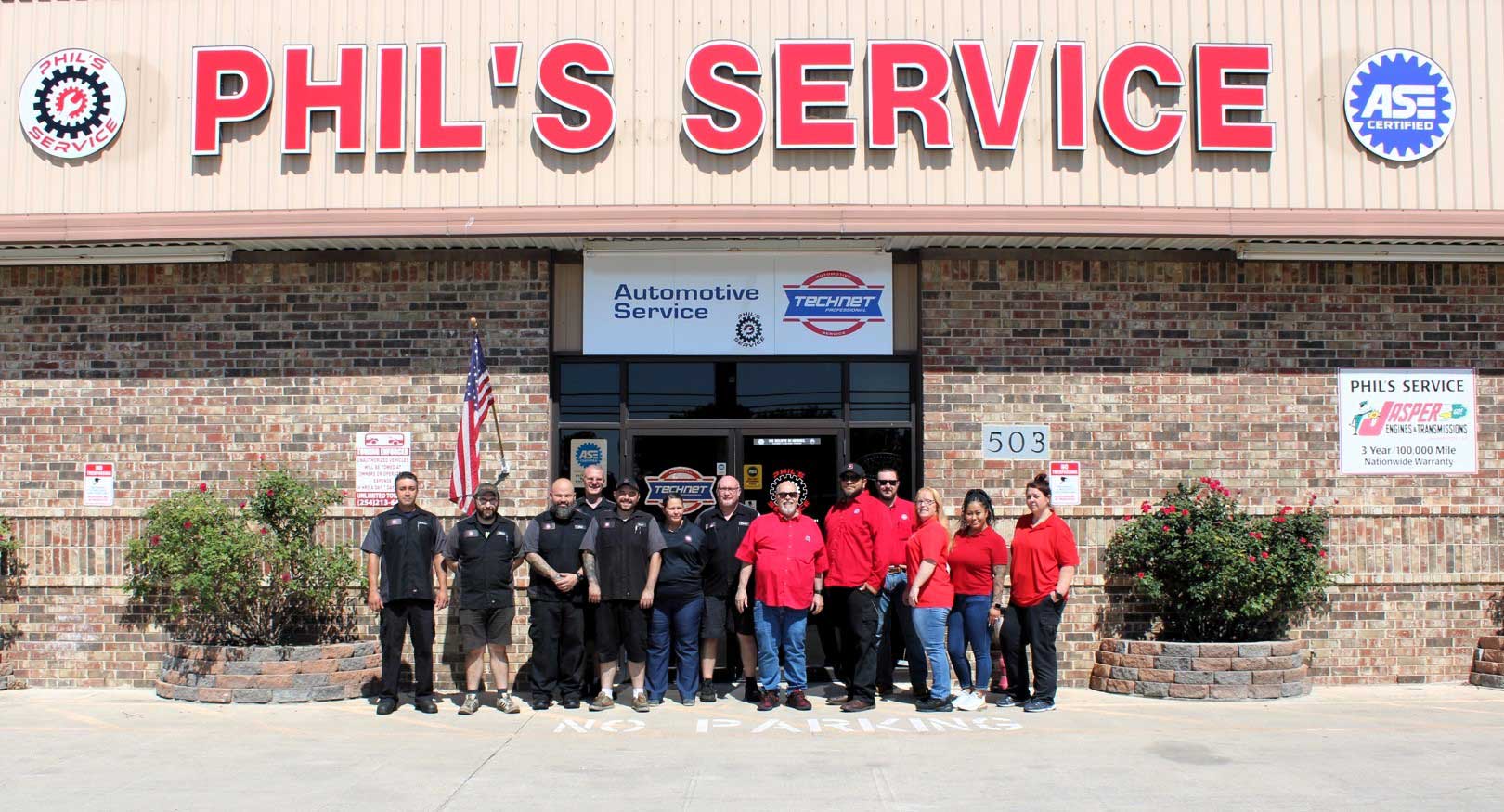Over two-thirds of Americans still prefer to use their private vehicle to commute to work over public transportation. For this reason, many Americans can't risk losing it.
Engine noises and warning lights often go overlooked in the business of day-to-day life. But, they really shouldn't be!
The longer engine problems are put off, the more expensive and damaging they become. To keep your car running in tip-top shape, you have to pay attention to the noises it's making.
Below is a comprehensive list of abnormal engine sounds. Keep reading to learn about these and a great Killeen auto repair shop to get it fixed!
Squeaking
If you're noticing your engine making a squeaking or squealing noise, you most likely have an issue with your serpentine belt. It could also sound like chirping or whining.
This belt looks like a rubber band threaded through different pulleys on your engine. It gives power to your alternator, power steering pump, air conditioning compressor, and, sometimes, the water pump.
Usually, these last anywhere from 50,000 and 100,000 miles. It can always happen sooner or later depending on the type of vehicle.
It's possible that your serpentine belt has become worn, brittle, or fade and isn't attaching to the pulleys as well as it should be. The old belt needs replacing.
Don't be surprised if one of the pulleys needs replacing as well. A pulley may have stopped spinning correctly, leading to the belt issue.
Knocking
If your engine is producing a banging or knocking sound, there are a few possibilities. Some of the issues that make this sound are easy fixes, but some aren't.
One example of this is when your coolant runs too low. It causes your engine to overheat and knock or even ping.
It means that you have a leak somewhere in the interior where you're losing coolant. Coolant is extremely damaging to your bearings.
If you notice these kinds of sounds when accelerating, your motor mounts or bearings may already be damaged.
They're not too difficult to replace, but there might be other damage in the area.
Using the wrong fuel type is a more simple issue for the knocking sound.
Spark plugs misfiring leaves unburned fuel in certain cylinders. These need replacing if worn out.
Look out for carbon build-ups. These greasy deposits cause a banging sound from the combustion chamber. If you have an older vehicle, the cylinder heads may need to be rebuilt.
Grinding
Grinding when accelerating isn't a noise you want to hear coming from your engine. It's rarely an easy, inexpensive fix.
It's best to pull off immediately and call for assistance. If your transmission were to break while you're driving, you'd be in a dangerous circumstance.
In the best-case scenario, the grinding is a brake pad that's catching or a bad wheel bearing. In the worst-case scenario, your car's transmission needs removing or rebuilding.
Rattling
If your engine is making a rattling noise, there's a good chance you need your timing belt or chain replaced. The tensioning system keeps the belt snuggly in place.
Once it loses its strength, the belt starts moving more than it should. That results in the rattling noise you hear.
The rattling noise should be pretty loud when you're accelerating. It's hard to miss.
It's also something to fix right away. If the timing belt breaks, you'll experience engine failure.
Positioned between your engine and transmission is a part called the flywheel. It's also known as a flexplate.
If this part becomes cracked, it starts to bend when you accelerate. That sound disappears when you let off the gas pedal.
It makes this rattling sound because the flywheel isn't aligned perfectly anymore. Some describe it as a knocking sound as well.
Worn rings produce a rattling sound too. It's mostly heard during acceleration and is known for its high-pitched rattle.
The obvious fix for this situation is to have the worn rings replaced.
Clacking or Clicking
If you're noticing a clack-clack sound when you start your car, you're most likely dealing with a piston slap. Pistons are supposed to fit tightly inside their cylinders.
The piston slap happens when there's too much wiggle room. They rattle against the cylinder wall.
If that's not the case, the valve train may be to blame for a clicking sound. Too much room in the valve train causes a light-clicking sound when the engine idles.
It could also be from damaged parts, greasy hydraulic lifters, or irregular valve adjustment.
Overall Noisy Engine
There are numerous reasons why your engine runs louder than it should. But, be on alert for an exhaust leak.
Gasses escape through cracked pipes, broken manifolds, and loose fittings. You'll notice a hissing sound and probably oil on the ground.
These can be especially dangerous because of carbon monoxide. It doesn't have a smell and is poisonous.
If you think this is a possibility, get it to a mechanic right away. They'll know how to inspect it and how to fix it.
Your car may just run louder than other cars. They'll be able to tell you that too.
Find Killeen Auto Repair
Whatever abnormal engine sounds your vehicle is making, it's best to take it to a professional to get it figured out quickly and carefully. Knowing the sound and where it's coming from gives your technician a better idea of where to look.
But, a true professional finds the issue whether you're prepared or not. Don't delay!
If you're searching for Killeen auto repair shops, Phil's Service is here to help. Learn more about engine repair and grab a $10 off coupon!
Worried about the noise coming from your car’s engine? Call our ASE Certified technicians at Phil’s Service for more information about engine repair services.
Over two-thirds of Americans still prefer to use their private vehicle to commute to work over public transportation. For this reason, many Americans can't risk losing it.
Engine noises and warning lights often go overlooked in the business of day-to-day life. But, they really shouldn't be!
The longer engine problems are put off, the more expensive and damaging they become. To keep your car running in tip-top shape, you have to pay attention to the noises it's making.
Below is a comprehensive list of abnormal engine sounds. Keep reading to learn about these and a great Killeen auto repair shop to get it fixed!
Squeaking
If you're noticing your engine making a squeaking or squealing noise, you most likely have an issue with your serpentine belt. It could also sound like chirping or whining.
This belt looks like a rubber band threaded through different pulleys on your engine. It gives power to your alternator, power steering pump, air conditioning compressor, and, sometimes, the water pump.
Usually, these last anywhere from 50,000 and 100,000 miles. It can always happen sooner or later depending on the type of vehicle.
It's possible that your serpentine belt has become worn, brittle, or fade and isn't attaching to the pulleys as well as it should be. The old belt needs replacing.
Don't be surprised if one of the pulleys needs replacing as well. A pulley may have stopped spinning correctly, leading to the belt issue.
Knocking
If your engine is producing a banging or knocking sound, there are a few possibilities. Some of the issues that make this sound are easy fixes, but some aren't.
One example of this is when your coolant runs too low. It causes your engine to overheat and knock or even ping.
It means that you have a leak somewhere in the interior where you're losing coolant. Coolant is extremely damaging to your bearings.
If you notice these kinds of sounds when accelerating, your motor mounts or bearings may already be damaged.
They're not too difficult to replace, but there might be other damage in the area.
Using the wrong fuel type is a more simple issue for the knocking sound.
Spark plugs misfiring leaves unburned fuel in certain cylinders. These need replacing if worn out.
Look out for carbon build-ups. These greasy deposits cause a banging sound from the combustion chamber. If you have an older vehicle, the cylinder heads may need to be rebuilt.
Grinding
Grinding when accelerating isn't a noise you want to hear coming from your engine. It's rarely an easy, inexpensive fix.
It's best to pull off immediately and call for assistance. If your transmission were to break while you're driving, you'd be in a dangerous circumstance.
In the best-case scenario, the grinding is a brake pad that's catching or a bad wheel bearing. In the worst-case scenario, your car's transmission needs removing or rebuilding.
Rattling
If your engine is making a rattling noise, there's a good chance you need your timing belt or chain replaced. The tensioning system keeps the belt snuggly in place.
Once it loses its strength, the belt starts moving more than it should. That results in the rattling noise you hear.
The rattling noise should be pretty loud when you're accelerating. It's hard to miss.
It's also something to fix right away. If the timing belt breaks, you'll experience engine failure.
Positioned between your engine and transmission is a part called the flywheel. It's also known as a flexplate.
If this part becomes cracked, it starts to bend when you accelerate. That sound disappears when you let off the gas pedal.
It makes this rattling sound because the flywheel isn't aligned perfectly anymore. Some describe it as a knocking sound as well.
Worn rings produce a rattling sound too. It's mostly heard during acceleration and is known for its high-pitched rattle.
The obvious fix for this situation is to have the worn rings replaced.
Clacking or Clicking
If you're noticing a clack-clack sound when you start your car, you're most likely dealing with a piston slap. Pistons are supposed to fit tightly inside their cylinders.
The piston slap happens when there's too much wiggle room. They rattle against the cylinder wall.
If that's not the case, the valve train may be to blame for a clicking sound. Too much room in the valve train causes a light-clicking sound when the engine idles.
It could also be from damaged parts, greasy hydraulic lifters, or irregular valve adjustment.
Overall Noisy Engine
There are numerous reasons why your engine runs louder than it should. But, be on alert for an exhaust leak.
Gasses escape through cracked pipes, broken manifolds, and loose fittings. You'll notice a hissing sound and probably oil on the ground.
These can be especially dangerous because of carbon monoxide. It doesn't have a smell and is poisonous.
If you think this is a possibility, get it to a mechanic right away. They'll know how to inspect it and how to fix it.
Your car may just run louder than other cars. They'll be able to tell you that too.
Find Killeen Auto Repair
Whatever abnormal engine sounds your vehicle is making, it's best to take it to a professional to get it figured out quickly and carefully. Knowing the sound and where it's coming from gives your technician a better idea of where to look.
But, a true professional finds the issue whether you're prepared or not. Don't delay!
If you're searching for Killeen auto repair shops, Phil's Service is here to help. Learn more about engine repair and grab a $10 off coupon!


